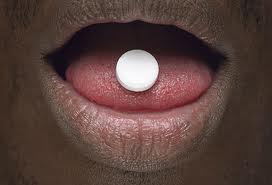This two-part article series examines a fairly common condition, dry mouth or “xerostomia” that can cause a higher risk of oral infection and tooth decay.
Welcome back to our two-part article series on the causes, symptoms and consequences of “dry mouth” or “xerostomia”. In our previous article post, we spoke to a Silver Spring dental professional who discussed the symptoms of dry mouth, as well as the long-term repercussions of ignoring such a chronic condition. In this article, we’ll address two pressing questions: (1) What causes dry mouth and (2) What can be done about it?
The Causes of Xerostomia

- Lifestyle Factors: Smoking or chewing tobacco is notorious for causing dry mouth, as is alcohol.
- Sinus Problems: Continuously breathing through your mouth causes saliva to evaporate, which can lead to dry mouth.
- Dehydration: If your body is short of water, so will be your salivary glands. Conditions and ailments that cause dehydration can therefore also lead to dry mouth. These conditions include blood loss, diarrhea, fever, vomiting and excessive sweating.
- Certain Medications: Many medications and over-the-counter drugs can cause xerostomia as a common side effect. These medications for allergies, anxiety, depression, epilepsy, pain, acne, hypertension, obesity, nausea, asthma, diarrhea, urinary incontinence and even Parkinson’s disease. Decongestants, antihistamines, sedatives and muscle relaxants can also cause dry mouth.
- Certain Infections and Diseases: Xerostomia can also be a symptom of certain ailments, such as mumps, Parkinson’s disease, Alzheimer’s disease, HIV/AIDS, anemia, rheumatoid arthritis, diabetes, stroke, cystic fibrosis, Sjögren's syndrome and hypertension.
- Certain Medical Treatments: Any procedure or treatment that risks damage to the salivary glands, such as radiation therapy and chemotherapy for cancer treatment, can compromise the healthy production of saliva, resulting in dry mouth.
- Nerve Damage: Accidental trauma or surgery in the neck and head area can cause nerve damage that can result in dry mouth.
- The Surgical Removal of the Salivary Glands: This might be necessary for the removal of cancerous tissue from the oral cavity.
Treating Dry Mouth

There are two approaches to treating dry mouth. The first is to address the immediate symptoms by keeping your mouth irrigated. Keep a bottle of water handy and take regular sips to keep your mouth moist. You can also chew sugar-free gum, which will help stimulate the production of saliva in your mouth. The second approach is to address the root cause of dry mouth. If you suspect it may be the result of a medication you’re on, speak to your doctor before you simply stop taking it. It may be possible to eliminate the problem by adjusting the dosage or swapping it for a different drug. In the case of smoking and heavy drinking, cut down or stop all together.
Then, there are the preventative measures you should be taking. If you suffer from dry mouth as a result of smoking, medication, illness or any other condition, you should be going the extra mile to keep your teeth and gums healthy. Without the natural production of saliva, your mouth is extremely vulnerable to oral bacteria, which puts you at a greater risk of gingivitis, gum disease, thrush, tooth decay and cavities. Silver Spring dental professionals generally advise that you maintain a rigorous home oral hygiene routine and make regular use of an anti-bacterial mouthwash. You may even be prescribed a saliva stimulant medication, Salagen, which combats dry mouth.
A Final Note on Dry Mouth
“This uncomfortable condition can have some serious health impacts on your teeth and gums,” warn dentists in Silver Spring. If there is no solution to the root cause of dry mouth, then be sure to speak to your dental healthcare professional about how you can minimize the impacts upon your oral health.”
No comments:
Post a Comment